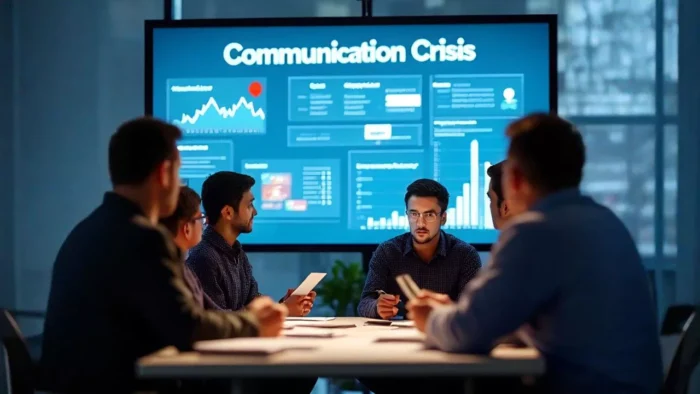Brand advocates: create in times of calm, use in times of crisis

People who are the public voice of your business should inspire trust and respect. In the event of an information crisis, such a well-established and high-quality pool of brand advocates will become a support for protecting the company’s reputation. But these experts are not taken “from the ceiling”. This is the result of long-term work – both communication and personal – with each person. So where to start and what problems can you face here?
It often turns out that a business lacks internal experts. This is evident when a communication crisis occurs. That is, there are either no people who would systematically work on their image, thereby strengthening the company’s voice, or the “topic” of the crisis does not intersect with the topic of their public expertise.
Then the business urgently seeks external experts. PR people try to explain the situation to them, update them on all the nuances and pitfalls, and convince them to agree to tell the story of the business to their audience. But, as often happens in a crisis, anti-crisis PR is done “on the knee” – you need to react here and now, and additional time for persuasion by an external expert is an unacceptable luxury. In addition, his audience quite often does not correspond to the company’s target audience. And such emergency cooperation has its price.
99% of the manifestations of internal experts work for their reputation. 1% – to protect the business when an information crisis occurs. Of course, these are conditional proportions. But why such an imbalance? A far-sighted business builds the reputation of its lawyers in calm times for the company. Then the goal is not yet public lobbying of the interests of the business – PR people build trust in the expert himself, his knowledge and values, gather like-minded people around him, ready to rationally perceive the business’s messages. And only then, in times of turbulence, this “extracurricular work” helps to strengthen public support for the company.
The higher the position, the higher the trust. Any employee can potentially become a brand advocate. However, the public trusts those who are “higher” in the hierarchy. This is about the subconscious understanding that such a person has more experience, knowledge, and professionalism.
We need to talk more about the company. Wherever I work, I have always been faced with the need to create an advocacy pool. But here we come to perhaps the most difficult thing – the human factor.
Not everyone wants publicity. Not everyone is ready to devote their time to building a media reputation. Not everyone sees value in this for themselves, so they do not want to spend their resources on it. On the other hand, we can “create” an expert, and in the event of a crisis, he will not want to communicate the things we need. Why? Because he will consider the public reputation as his own, his own, and will not want to “spoil” it. In my practice, there was a situation when we urgently needed a strong media figure of a financier and a lawyer from within the company. And what? No one wanted to become one.
However, forcing is not an option. Yes, a business can theoretically oblige its managers to make public appearances in the media. But if this does not coincide with the desire of the person himself, the result will be so-so. So you need to communicate, talk, look for those who will like the media role of an expert.
Creating “Think tanks” projects is an ideal addition to brand advocacy. This path is longer, more difficult, but more effective. Through such platforms, constant, professional and business-oriented communication takes place with completely different target audiences. Here we are not so much talking about the general public, but about creating strong messages broadcast to officials, regulators, law enforcement officers, the international community, etc. The format of the project and its expert “components” completely depend on the potential risks of the business and the specifics of the desired audience. It may seem that this is more for GR. However, it is PR people who put the necessary messages into the “Think tanks” project, reinforce them through the media, and scale them by involving the broad masses of the public in the topic. And only then does this together give GR-niks the cards with which they can go “higher” to lobby for the interests of the business or solve a reputational crisis. I have experience in creating such a project. It took more than two years and 100% involvement of the main expert, but the results were worth it.
So the ideal balance is to have your “Think tanks” project and a pool of experts BEFORE the crisis. We are talking about both external brand advocates whose public role is in tune with the sphere of your business, and your own, internal ones. And you need to develop them in calm times. And when a crisis comes, their media presence and reputation will help quickly convey the business’s opinion to various target groups and influence decision-making.


